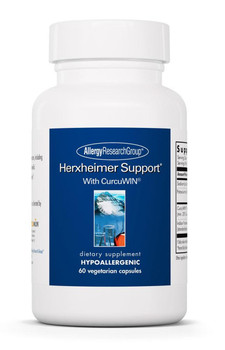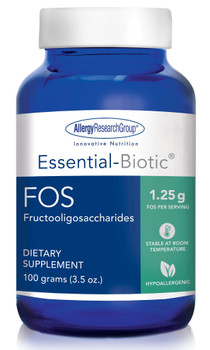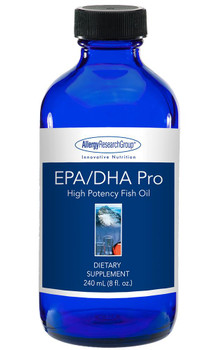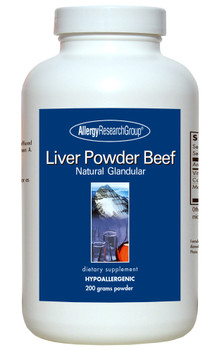 |
|
ImmunoPro®
10.6 oz (300 g)
(Allergy Research Group)
|
| |
ImmunoPro® is a biologically active, non-denatured whey protein containing high levels of lactoferrin, immunoglobulins, active peptides, and growth factors, as well as covalent bonded cysteine, a critical precursor for the production of glutathione. ImmunoPro® is not a by-product of cheese manufacture, which denatures the whey protein components. It is GMO-free, and is from hormone treatment-free, disease-free, pesticide-free, chemical-free, natural grass pasture-fed cows.
ImmunoPro® is made from milk that is Hormone Treatment Free. The milk for ImmunoPro and all of these exclusive whey protein products is from herds that graze on disease-free, pesticide-free, chemical free, natural grass pastures and the milking cows are not subject to any chemicals, hormones, antibiotics, genetically modified organisms, hyperimmunization or injected pathogens. They do not ingest any unnatural man-made substances. There is no history of bovine disease with the milk cows or dairy. The cows have never been fed any imported food or cannibalistic by-products. ImmunoPro is used daily by well-respected doctors in this country.
|
| Ingredients per serving |
|
- Calories, 20
- Total Fat, 0.3 g
- Cholesterol, 5 mg
- Sodium , 10 mg
- Potassium, 30 mg
- Total Carbohydrate, 0.5 g
- Dietary Fiber, 0 g
- Sugars , 0.5 g
- Protein, 4 g
- Calcium, 20 mg
- Immunoglobulins, 500 mg
- Serum Albumin, 225 mg
- Lactoferrin, 200 mg
|
| Other Ingredients |
|
n/a
|
| Contents |
|
10.6 oz. (300 g) Powder
|
| Serving Size |
|
1 scoop (5 g)
|
| Suggested Use |
|
Add to water, milk, semi-liquid dairy products or a dairy substitute. You may use a container to shake it, or an electric blender on low speed for a short duration and there will be no damage to the proteins. Liquids may be cold or room temperature - do not use hot or warm liquids above body temperature. If possible drink slowly and let it circulate in the mouth before swallowing, to promote the uptake of the native protein peptides. As an alternative, one may place a small amount of the powder directly in the mouth, ½ teaspoon, as often as desired and chew slowly.
|
| Precautions |
|
More usage information:
What is the best solution to mix ImmunoPro in and why?
Water, milk, semi-liquid dairy products or a dairy substitute are all appropriate to thoroughly mix ImmunoPro. The whey proteins are easily denatured through heat and pH change. Mixing the whey protein with other types of food can induce a pH change and slow the transit time in the stomach through its digestive response to the solid food. Liquids that are not neutral in their pH can also denature the proteins, for example, most fruit juices, coffee, and tea. By following the above guide the uptake of the intact native proteins in the upper small intestine is optimized. The addition of a sweetener or flavoring for palatability with ImmunoPro is acceptable.
How much should one take and how often?
Servings can vary greatly for each individual. For many individuals it can be one or more servings, one, two, three or more times per day. If there is a possibility you may be sensitive, we suggest that you begin with one measuring teaspoon (approx. 1.5 grams) or less. Ingest on an empty stomach and refrain from eating for 15 minutes. Ramping up slowly is advisable to avoid possible uncomfortable responses. If one experiences bloating from drinking this product, try placing ½ teaspoon of the powder in the mouth and let it dissolve by slowly chewing it. It is acceptable to alternate days of use for sensitive individuals. You may consult with your health care professional regarding servings.
Possible Whey Protein Reactions: If one has a true milk allergy, all dairy products need to be avoided. People with this condition should be aware of it. Intolerance to milk products is far more common and can be from consuming dairy proteins that are damaged from pasteurization and processing. Native whey proteins are not subject to any methods that would damage the full range of the protein components and enzymes. For sensitive individuals a quality probiotic product used concurrently can be helpful. Candida has also been reported as a possible condition that may cause intolerance. Lactose content is 0.3g per 5 grams, well below the level for intolerance. True lactose intolerance usually presents itself as diarrhea. Intestinal health, permeable gut, may be a factor.
|











